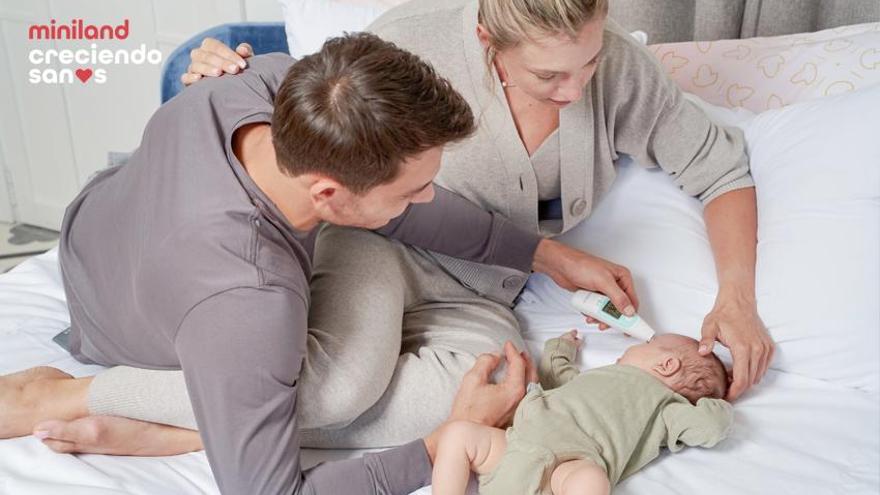We are already in the middle of autumn and this is synonymous not only with the school year, but also with a runny nose, cough and flu. As Lucia, my pediatrician, often says, our children usually get the viruses “in September and release them in May at best”. That is why it is at this moment that we ask ourselves, in conjunction with the flu vaccine campaign, whether it is appropriate to vaccinate children. And is that until now, this dose is Funded only for children under six months, pregnant women and people at risk, as well as the cohabitants of these groups. However, as the pediatrician told us live on IGLive with our friends from MinilandThere is news on this topic.
And is that the Vaccine Advisory Committee of the Spanish Association of Pediatrics recommends that this vaccine can also be applied to children between six months and five years. But it wasn’t until a few days ago when The National Health System has decided to fund the vaccine for all these children, regardless of whether they have risk factors or not. Of course, as it enters into force once the vaccination campaign has already begun, it has reached only a few autonomous communities in time. This is the case of Murcia, Galicia and Andalusia. In the rest of the autonomies, the dose will still have to be paid at the pharmacy, even if the next campaign (2023-2024) will already be approved and financed, as is the case in various European countries and also in the United States. There, as soon as the school year begins, all children are vaccinated free of charge.
So, do I vaccinate or not vaccinate my child?
Once we know this news, perhaps doubt assails us parents: what do we do? Lucia, my pediatrician is clear. “The flu vaccine in children has always been a recommended measure. In fact, the WHO has been recommending it since 2012. And it is that unlike the coronavirus, the children here are the transmitters. When the flu arrives in our country, they are the first to catch it and many get caught. Indeed, two out of three children hospitalized with the flu have no risk factors. It’s true that they usually don’t cause serious complications,” she explains.
In this sense, Lucía points out that when they see a peak of flu in children during consultations, immediately after the peak occurs in adults. “We see these two waves. That’s why vaccinating children against the flu is an international strategy, but also a way to protect adults and, above all, the over 65s with pathologies who in many cases are grandparents who take care of their grandchildren . We must protect the child and the family and thus avoid transmission with the environment. Even though our son is over five and has less risk of complications. I continue to vaccinate mine, ”he advises without hesitation.
Can I vaccinate him with cough or runny nose?
Lucía, my pediatrician also has an answer to this question. If our child has a cough or runny nose, he can be perfectly vaccinated, as this is likely to be the case, since we are between the months of September and May. But if what you have is an infectious process or fever, it is advisable to wait a few hours or days until you find the focus of that fever or that infection. It must be taken into account there are more than 200 viruses that produce very similar symptoms. We must be prepared, because as the pediatrician announces, this year there will be “more viruses than last year and the previous year. We will reach pre-pandemic levels and we will have the feeling that our child suddenly gets sick many times in a row. The measures of two years ago, i.e. the gels, the masks, the isolation, have reduced the infectious pathologies of winter “, he concludes.
And what about brochiolite?
This year, pediatric emergencies have increased by 40% compared to previous years, as comments Lucía, my pediatrician. Y this is where brochiolite comes into play, which is a lower respiratory tract infection in a child under the age of two. Most often it is caused by a virus. “33% of children under one year of age will suffer from it and it is a disease that fills hospitals at this time of year and between 7 and 12% end up in hospital,” according to Lucía. Normally these children start out with a normal cold but after three days they are very weak, stop eating and have intercostal injection (ribs sinking). There is no clearly effective cure, because according to the pediatrician, bronchodilators are not suitable for children if they are very young. “The important thing is to moisturize them and keep an eye on them,” she suggests. To prevent them, nothing better than frequent hand washing, if we have a cold, do not visit a child and pay attention to those warning signs.


